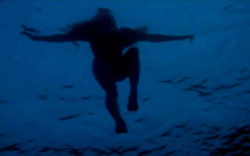“For a Dene, a subarctic Canadian indigenous tribe, the true reality of time is too precious and too important to be used as a reference for insignificant things. Time meant the rhythm of the earth and human growth; the seasons, the families, the sun, and the cycle of life. They didn’t break time into different chunks. They just lived.” –Rene Fumoleau
I was sitting in a dentist chair. My dentist was delayed—there was an emergency. Across the hall, I heard suction and quick, quiet exchanges between staff. I was alone. What to do with this unexpected time? I decided to sit in stillness. I’m trying to resist the compulsion to fill such moments with activity. I sat, and I sat. Without a way to measure time, how could I feel proud of my patience? I lunged over the chair’s restraining arm to grab my phone.
I found the above quote in Heron’s Dance, “Pause for Beauty,” an emailed newsletter created by Ron MacIver. Very timely, I thought. I use time as a reference for things that would be insignificant for those living closer to the rhythm of the earth—like this dental appointment. It was not going according to plan, and my inability to control that made me fidget.
What would it take to unhitch myself from the timekeeping of our civilization, even for a day or two? We’ve harnessed time into a structure that dictates our lives, minute by minute. When I am in nature, I seek the wild—inside myself as well as outside. Loosening the grip of time is essential. I silence my phone. I don’t check it, though not taking a picture is more difficult. I don’t wear a watch or track my activity. I can sink a bit into the Now, but I’d like to lengthen the experience, which consequently, lengthens the perception of time.
To leave typical human timekeeping I’d have to leave typical humans. There’d have to be no clocks, no devices. The easiest solution would be to go camping alone, backpacking ideally. But I’m over 60 and haven’t slept in a tent in more than 20 years. I could do it, but I doubt I will.
My dental appointment resumed. Afterwards I went to the Y to swim. I sat in the car summoning my motivation. I had my suit, I had enough time scheduled, but I resisted. Time works differently in retirement. I don’t always want to follow the plan. I overcame my resistance (I don’t always) and got in the pool.
It was a gray day, but a ray of sun shot down the lap lane from the long row of windows and I swam in and out of the light over and over, delighting at the play of water shadows on the ceiling. Time could almost slip away here. But the big clock on the wall faced me after each turn, and I counted my laps. How entrenched and committed we are to this artifice of our creation.
I thought again of the Dene and others who tracked time as a circle of seasons instead of a grid. I’ve seen the spiral petroglyphs of the Hohokam in Arizona, and of Ireland’s Neolithic people.
“Deep within the human mind, there is a fascination with the circle because it satisfies some longing within us,” writes John O’Donohue.
To belong to a community is to live within its accepted concepts. But awareness itself allows growth beyond straight lines.
The clock on the wall said it was time to get out of the pool. I got ready for the next thing.
Like what you just read? Support Flagpole by making a donation today. Every dollar you give helps fund our ongoing mission to provide Athens with quality, independent journalism.









